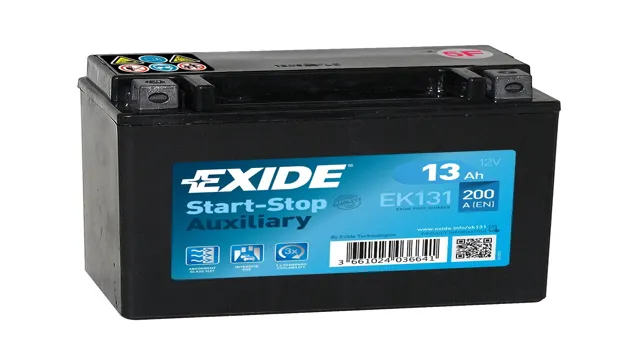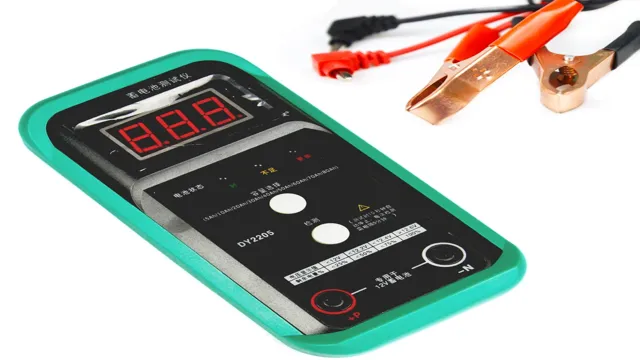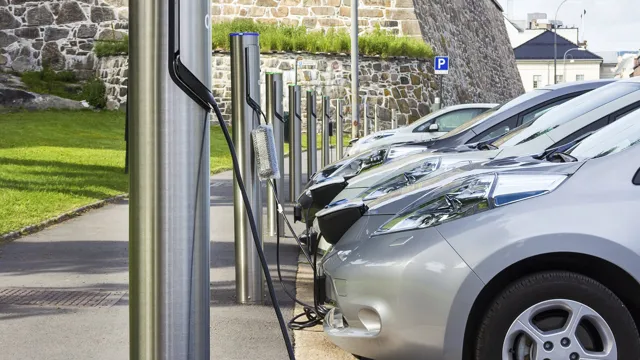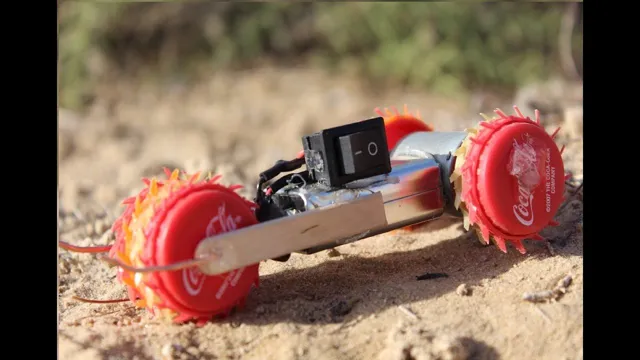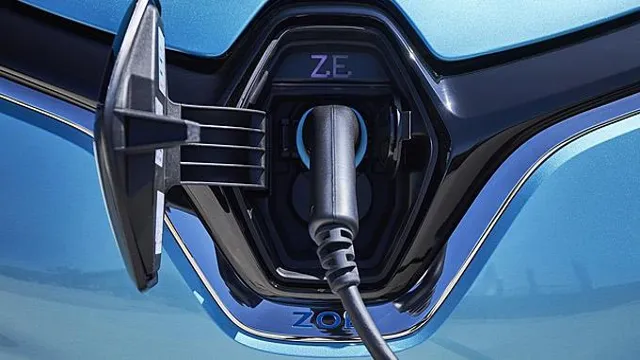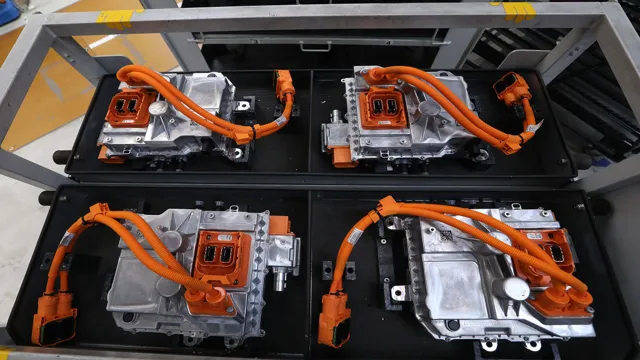The Power Booster: Everything You Need to Know about Auxiliary Batteries for Electric Cars
Electric cars are the way of the future, with the promise of lower emissions, higher efficiency, and significant cost savings. However, owning an electric car comes with its unique set of challenges. One of these challenges is ensuring that the car’s battery remains charged enough for the entire journey.
If you intend to use your electric car for long trips, using an auxiliary battery is an excellent option. In this article, we will look at why you need an auxiliary battery for your electric car and how it can make your trips smoother and more comfortable.
What is an Auxiliary Battery?
Auxiliary batteries for electric cars are additional batteries that are installed in the car to provide power to auxiliary systems such as air conditioning, audio systems, and lighting. These batteries are typically smaller and have a lower capacity than the main battery that powers the electric motor. Auxiliary batteries are important because they allow electric car owners to use these systems without draining the main battery, which would reduce the car’s range.
In addition, auxiliary batteries can be charged separately from the main battery, so owners can recharge them overnight or at home, rather than having to rely on public charging stations. If you’re thinking about installing an auxiliary battery for your electric car, be sure to choose one that is compatible with your car’s main battery and charging system to ensure optimal performance. By having an auxiliary battery, you can enjoy all the perks of driving an electric car without sacrificing comfort and convenience.
The Purpose of an Auxiliary Battery
An auxiliary battery is a secondary power source that can be used to run particular electrical components in a vehicle when the primary battery is unavailable or depleted. This additional battery sits alongside the primary battery in the engine bay or trunk and can provide an extended supply of power for various purposes, including the operation of the entertainment system, power outlets, and lighting. The purpose of an auxiliary battery is to ensure that the vehicle’s electrical systems remain functioning, even if the primary battery fails.
Many vehicle owners install auxiliary batteries for additional power capacity when they go camping, off-roading, or to operate additional electronics. The auxiliary battery typically works in combination with a battery isolator to prevent the two batteries from discharging each other. Overall, an auxiliary battery is a crucial component for maintaining the electrical systems in a vehicle, and it can provide additional support during emergency situations or when the primary battery is depleted.
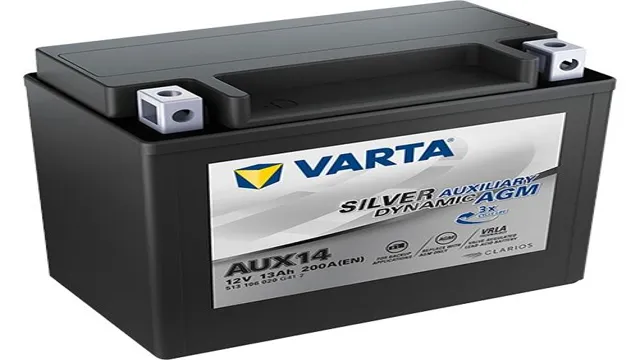
The Benefits of Having an Auxiliary Battery
An auxiliary battery for an electric car can be a game-changer for those who want to make longer trips without worrying about running out of power. By adding an extra battery, drivers can increase the range of their vehicle and extend their driving time. One of the biggest advantages of an auxiliary battery is that it gives you the peace of mind that comes with having a backup power source.
In the event that your main battery runs out of juice, you can switch over to the auxiliary battery and keep moving. This is especially useful when you’re on the road and don’t have access to a charging station. Additionally, using an auxiliary battery can help prolong the lifespan of your main battery by reducing the amount of strain it’s subjected to.
You can also use the auxiliary battery to power additional accessories, such as a fridge or camping gear. Overall, an auxiliary battery can be a great investment for anyone looking to get the most out of their electric car, providing an extra layer of security and flexibility on the road.
Extended Range
An auxiliary battery can bring numerous benefits to your vehicle, especially if you’re going on a camping trip or a long drive. By having an additional battery, you can run your accessories without draining the primary battery. This means you can keep your music playing, use your GPS device, charge your devices, and operate your lights without worrying about a possible battery failure.
Moreover, the auxiliary battery can provide you with more power and allow you to extend your range. This is particularly useful when you are off-roading or driving in remote areas where there are no gas stations nearby. You can also use your auxiliary battery to jump-start your vehicle in case your primary battery fails.
All in all, an auxiliary battery can significantly enhance your driving experience by providing convenience, reliability, and an extended range for your vehicle.
Improved Performance
Having an auxiliary battery can significantly improve the performance of your vehicle. With a secondary battery installed, you can power additional devices like headlights, air conditioning units, and even a stereo system without worrying about draining your main battery. This is especially useful when you’re on long road trips or spending time camping in the wilderness.
By separating the main functions of your vehicle from the additional ones that are powered by the auxiliary battery, you can ensure that your car or truck remains reliable and efficient regardless of the level of use. It’s like having a backup generator for your car — you won’t need to worry about running out of power when you need it the most. So if you’re looking for a way to improve the overall performance of your vehicle, installing an auxiliary battery is definitely worth considering.
Peace of Mind
Having an auxiliary battery can bring you the peace of mind you need when using your vehicle’s power for extended periods. With an auxiliary battery in place, you won’t have to worry about your car’s main battery running low on power while you’re running electronics like a fridge or charging your devices. This means you can rest easy knowing that you won’t be stuck with a dead battery and a car that won’t start.
Auxiliary batteries can also be charged while the engine is running, so you can always have a backup source of power ready to go. Whether you’re camping, road tripping, or simply need to power your electronics on the go, an auxiliary battery can provide the reliability and assurance you need. So why not consider installing one for your next adventure?
Choosing the Right Auxiliary Battery
Choosing the right auxiliary battery for your electric car is crucial to ensure its longevity and performance. It is important to consider factors such as the battery’s capacity, voltage, and type. Lithium-ion batteries are a popular option as they offer high energy density and a long lifespan.
Additionally, determining the correct size and placement of the auxiliary battery is essential for optimized performance. It is also important to consider the charging options and whether the auxiliary battery can be charged through regenerative braking or a separate charging system. Overall, investing in a high-quality auxiliary battery for your electric car will enhance the driving experience and ensure your vehicle performs at its best.
Factors to Consider
When it comes to choosing the right auxiliary battery for your vehicle, there are a lot of factors to consider. One of the most important things to think about is the type of battery you need. There are several different types of batteries available, including lead-acid, lithium-ion, and nickel-metal hydride.
Each type has its own unique set of advantages and disadvantages, so it’s important to do your research and determine which one is best suited for your needs. Additionally, you’ll want to think about the size and capacity of the battery, as well as its voltage and amperage ratings. It’s important to choose a battery that is compatible with your vehicle and will provide the necessary power to run all of your accessories and electronics.
Ultimately, the right auxiliary battery will depend on your specific needs and usage patterns, so take the time to do your research and make an informed decision.
Top Brands
When it comes to choosing the right auxiliary battery, it can be overwhelming to sift through all the top brands on the market. However, the key factors to consider when making a decision are the type of vehicle you have and your power needs. Optima, Deka, and ACDelco are all fantastic brands that offer reliable and efficient auxiliary batteries for a variety of vehicles, including cars, RVs, and boats.
Optima is known for its cutting-edge technology and high-performance capabilities, while Deka’s batteries are designed to withstand harsh conditions and provide long-lasting power. ACDelco is another reputable brand that offers a wide range of battery options at an affordable price point. Ultimately, it’s essential to choose a reliable and trustworthy brand to ensure that your auxiliary battery will perform well and last long enough to meet your needs.
So, consider your vehicle and power requirements carefully before making a decision and opt for a top brand like Optima, Deka, or ACDelco for optimal results.
Installation and Maintenance
Installing and maintaining an auxiliary battery for your electric car can greatly enhance your driving experience. Adding an auxiliary battery can provide additional power to your vehicle, allowing you to run more electrical devices. This can be incredibly useful, especially if you plan on taking long trips or traveling in remote areas where charging stations may not be available.
It is important to install the auxiliary battery correctly, as improper installation can lead to electrical problems down the road. Regular maintenance of the battery is also crucial, as it helps to ensure that the battery stays in good working condition. This includes regularly checking the battery’s charge level, inspecting the battery for any signs of damage or wear, and replacing the battery if necessary.
With the right installation and maintenance, an auxiliary battery for your electric car can provide years of reliable use and help to make your driving experience all the more enjoyable.
Do-it-yourself or Professional Installation?
When it comes to choosing between DIY installation and professional installation for your home systems, there are a few factors to consider. While DIY installation may seem attractive due to cost savings, it requires a certain level of technical expertise and can be time-consuming. On the other hand, professional installation may come with a higher price tag, but it ensures that the system is installed correctly and efficiently.
Additionally, professionals can provide ongoing maintenance and support, which can prevent future problems. Ultimately, the decision between DIY and professional installation depends on your individual needs and skill level. It’s important to weigh the benefits and drawbacks carefully and choose an option that is best-suited for you.
Regardless of which route you choose, be sure to prioritize safety and follow all necessary precautions during installation and maintenance.
Maintenance Tips
Installation and maintenance are two key areas to focus on when it comes to increasing the lifespan of your appliances. Proper installation ensures that the appliance functions optimally, and maintenance helps prevent breakdowns and costly repairs. Before installing an appliance, ensure that the space is adequate and all the necessary connections, such as the water inlet and outlet, are in place.
It’s important to read the installation manual thoroughly to avoid any mishaps. Once installed, regular maintenance should be carried out to ensure efficient performance. This includes cleaning the appliance regularly, inspecting the hoses and pipes for any leaks or damage, and replacing or repairing any faulty parts.
Neglecting maintenance can lead to wear and tear, and reduce the lifespan of the appliance. Regular maintenance not only extends the life of appliances but also reduces the risk of accidents and promotes safety in the home. Remember, investing a little time in maintenance can save you a lot of money in the long run.
Conclusion
In conclusion, an auxiliary battery for an electric car is like having a trusty sidekick by your side. While the main battery does the heavy lifting, the auxiliary battery provides a little extra oomph when you need it most. Think of it as your own personal Robin to your Batman.
So go ahead and hit the road with your electric car and let your auxiliary battery be your wingman!”
FAQs
What is an auxiliary battery for an electric car?
An auxiliary battery for an electric car is a secondary battery that works in tandem with the primary battery to power other features of the vehicle, such as the radio, air conditioning, and lighting.
How does the auxiliary battery in an electric car get charged?
The auxiliary battery in an electric car gets charged by the primary battery through a DC-to-DC converter.
What happens if the auxiliary battery in an electric car dies?
If the auxiliary battery in an electric car dies, some features of the car, such as the radio and air conditioning, may not work properly. It is recommended to have the auxiliary battery replaced as soon as possible to prevent other potential issues.
Are all electric cars equipped with an auxiliary battery?
Not all electric cars are equipped with an auxiliary battery. It depends on the manufacturer’s design and the features provided in the vehicle.
